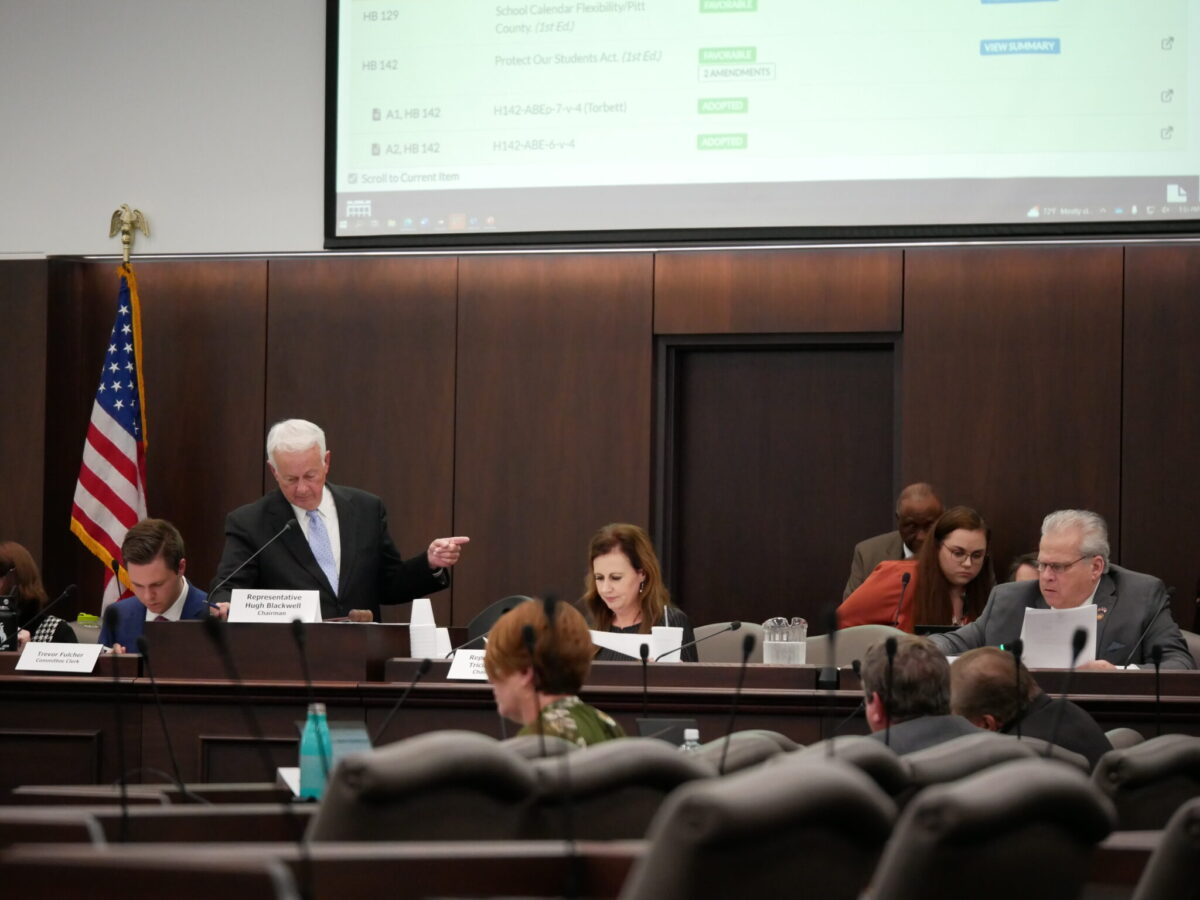

|
|
School calendar flexibility is a perennial topic at North Carolina’s state legislature, and this session isn’t any different.
Every session, lawmakers file and sometimes even pass bills that grant greater flexibility to districts to control their own school calendars. Usually, it’s the House that passes these bills, and then the proposed legislation dies in the Senate.
School districts will get a chance to see if senators are going to view these bills any more favorably this year, but according to the Senate’s top lawmaker, it’s unlikely.
The House K-12 committee took up a number of calendar flexibility bills on Tuesday. Six of them pertain to specific school districts, with a number of those getting amendments during the committee meeting to add even more districts.
And then one bill pertains to the entire state.
That bill, filed by Rep. Neal Jackson, R-Randolph, began life as a local bill that would have granted calendar flexibility to Randolph and Moore County Schools. But after 44 other representatives signed on as sponsors of the bill the day it was filed, he decided to make it a statewide bill, he said. It currently has 66 sponsors.
“Good government rules closest to home,” he said, adding that this bill would restore power to parents and school boards. “I’m sure parents will still take vacations. We’re not making the school calendar longer … We’re just giving the flexibility to the school boards. They don’t have to change the dates.”
The state mandates two things when it comes to school calendars: how many days students must be in school, and when districts can start and end their calendars.
The state says that students must be in school for a minimum of 185 days a year, or 1,025 hours of instruction. It also says that schools can’t start earlier than the Monday closest to Aug. 26, and they can’t end later than the Friday closest to June 11.
But North Carolina is geographically diverse. There may be snow storms in the west and hurricanes in the east. Schools are often forced to close and then jam in make-up days at odd times in order to fit within the legislative calendar mandate. Sometimes, because of how the calendar is set, students in some districts have Christmas break and then come back to take exams for the courses they finished before vacation.
Districts generally argue they need calendar flexibility to deal better with some of the issues unique to their areas of the state. In addition, districts want flexibility so that they can better align their calendars with those of community colleges, which some high school students attend.
There is large-scale bipartisan support for calendar flexibility, but advocates say that the tourism industry holds up legislation because businesses that rely on student workers over the summer don’t want districts to cut into their season.
In the course of the committee meeting, only one legislator said anything against calendar flexibility. Rep. Frank Iler, R-Brunswick, said that allowing districts to change the school start or stop dates could affect families trying to take vacation, and could even necessitate taking a child out of school to attend vacation.
“I’m all about local flexibility, but I feel like we’re attacking the family,” he said. “Instead of family time, they’ll have to take their kids out.”
While all of this is up for debate, some districts are taking matters into their own hands. Every year, individual districts have been defying state law and changing their calendars without permission.
In an email, staff for Senate President Pro Tempore Phil Berger, R-Rockingham, said he had the following to say about calendar flexibility bills during a press gaggle on Tuesday:
“I don’t see where there’s a need to change the calendar law, except maybe to beef up the enforcement mechanisms for local systems that ignore the law,” he said. “I don’t know that there’s a particular bill that would do that but from my perspective that’s probably the only change that would need to be made.”
The six calendar flexibility bills that passed through the committee were:
The statewide bill, House Bill 86, will come back before the committee at a later date.
House Bills 45, 106, 115, and 129 passed the full House Wednesday. House Bills 70 and 111 go next to the House rules committee.



